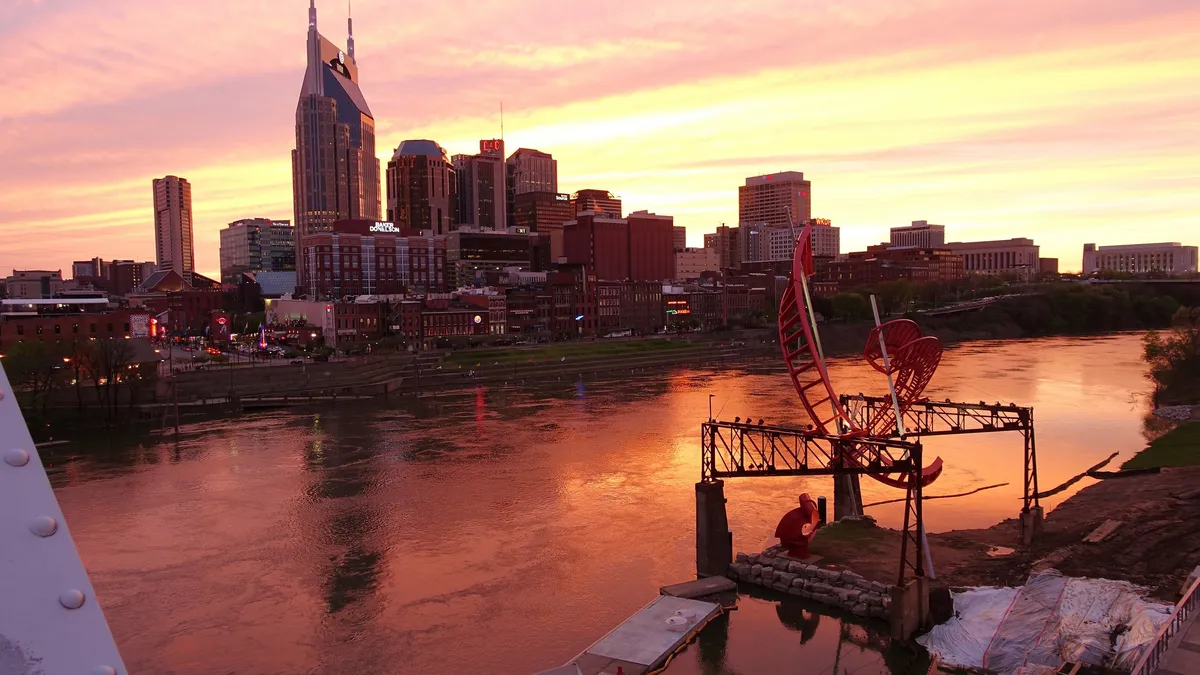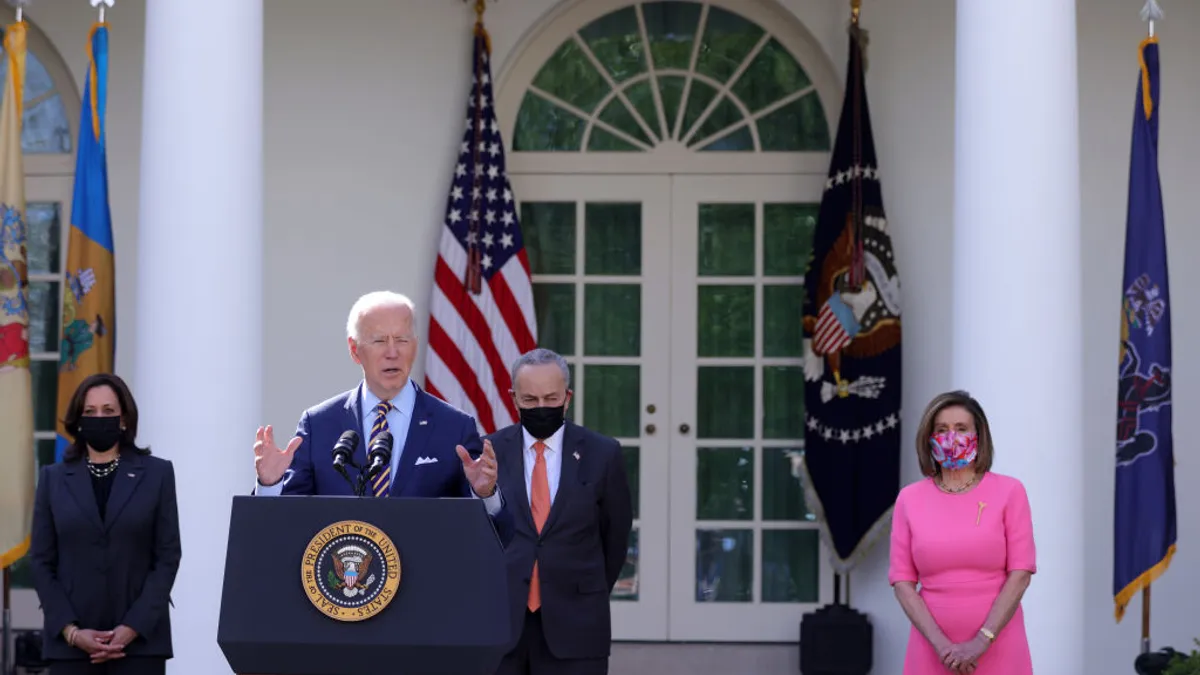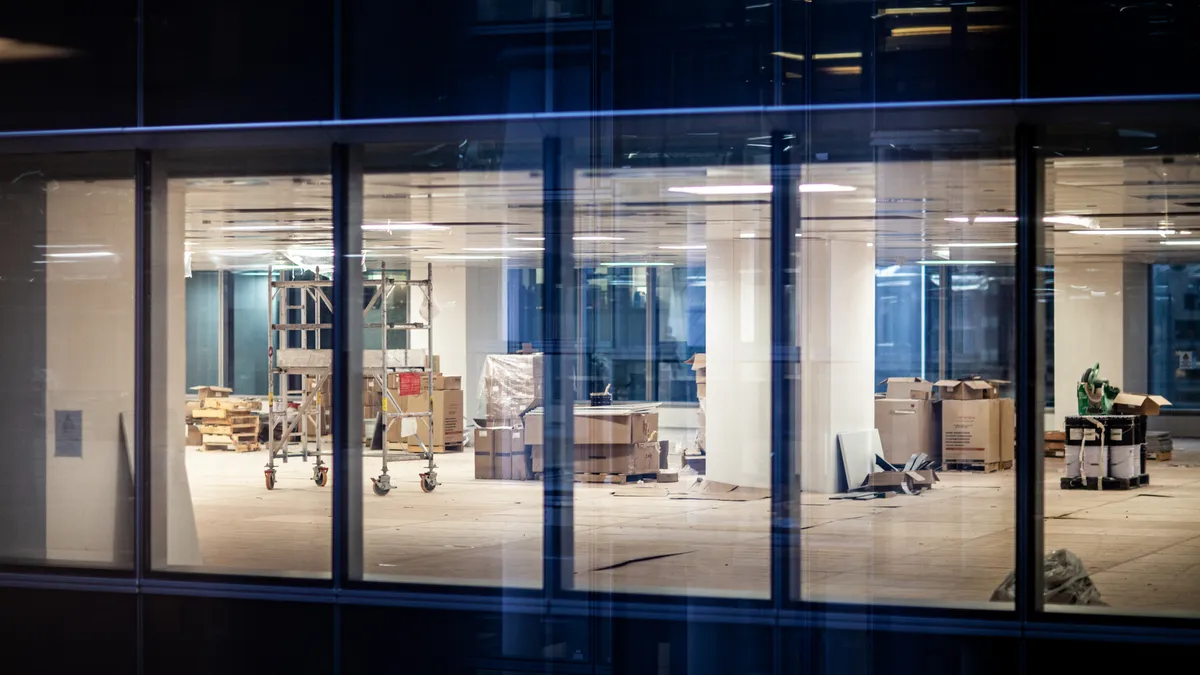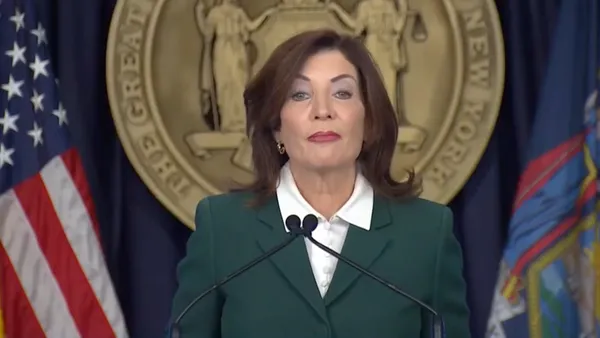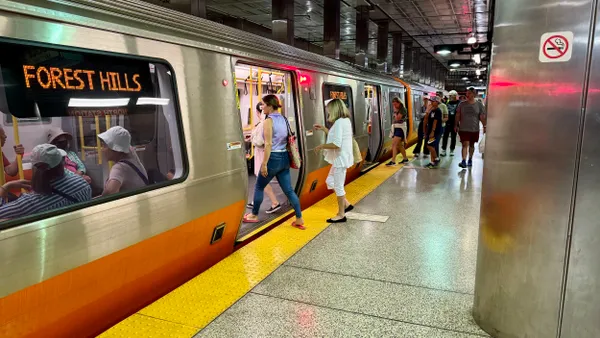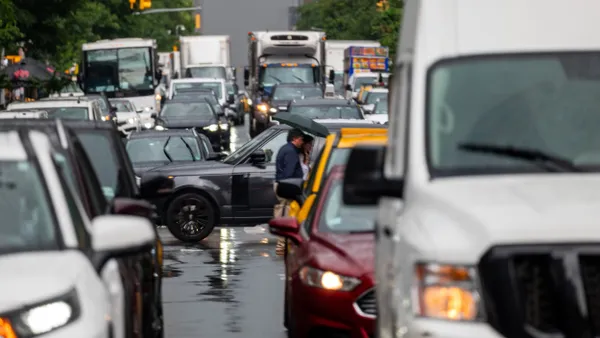Dive Brief:
- Nashville Mayor Megan Barry has introduced more details to city leaders about building a $936 million, 1.8-mile underground tunnel in the city's downtown, according to WKRN. The plan, part of the $5.2 billion Let's Move Nashville initiative, would help alleviate traffic congestion around the city's center.
- The tunnel, which would accommodate new rapid bus and light rail traffic on an underground north-south path, is just one piece of Barry's multiyear transportation agenda, which also includes on-demand bus technology, fleet upgrades, sidewalk improvements, park-and-ride lots and bike lanes.
- If Let's Move Nashville wins voter approval on May 1, the tunnel should open for passengers in 2027. Nashville's Metro Council will decide in January or February whether to put the multi-billion plan on the ballot.
Dive Insight:
Tennessee's IMPROVE Act, passed earlier this year, will not provide direct funding for the projects that make up Let's Move Nashville, but it permits the city to add a surcharge to local taxes as long as voters authorize it. The financing plan includes surcharges on business and excise, sales, hotel-motel and rental car taxes.
In November of last year, Los Angeles County residents voted to authorize Measure M, which increased the sales tax by 0.5 cents and continued a 0.5-cent traffic relief tax. The two taxes are expected to raise up to $860 million a year, in 2017 dollars, for transportation projects, maintenance and affordable fare programs.
The first major project financed by the Measure M initiative, the $1.5 billion Gold Line Foothill Extension Phase 2, broke ground this week, according to MassTransitMag.com. The extension will connect more of the county's east-side cities with downtown, and more than $1 billion of the total price tag will come from Measure M funds. Neighboring San Bernardino County will pay for the portion of the extension that crosses into that county.
Another light rail project funded by Measure M will be the South Bay Metro Light Rail Extension, which will stretch nearly 5 miles south from the line's current terminus in Redondo Beach, CA. The Los Angeles County Metropolitan Transportation Authority (Metro) projected the cost for the new line will be approximately $891 million.
Metro officials also said the agency is preparing to issue requests for proposals (RFPs) for the Sepulveda Transit Corridor, the West Santa Ana Branch Transit Corridor and an expansion of the agency's ExpressLanes system, all of which will use Measure M funds as well. The Metro will take on the projects as public-private partnerships.


